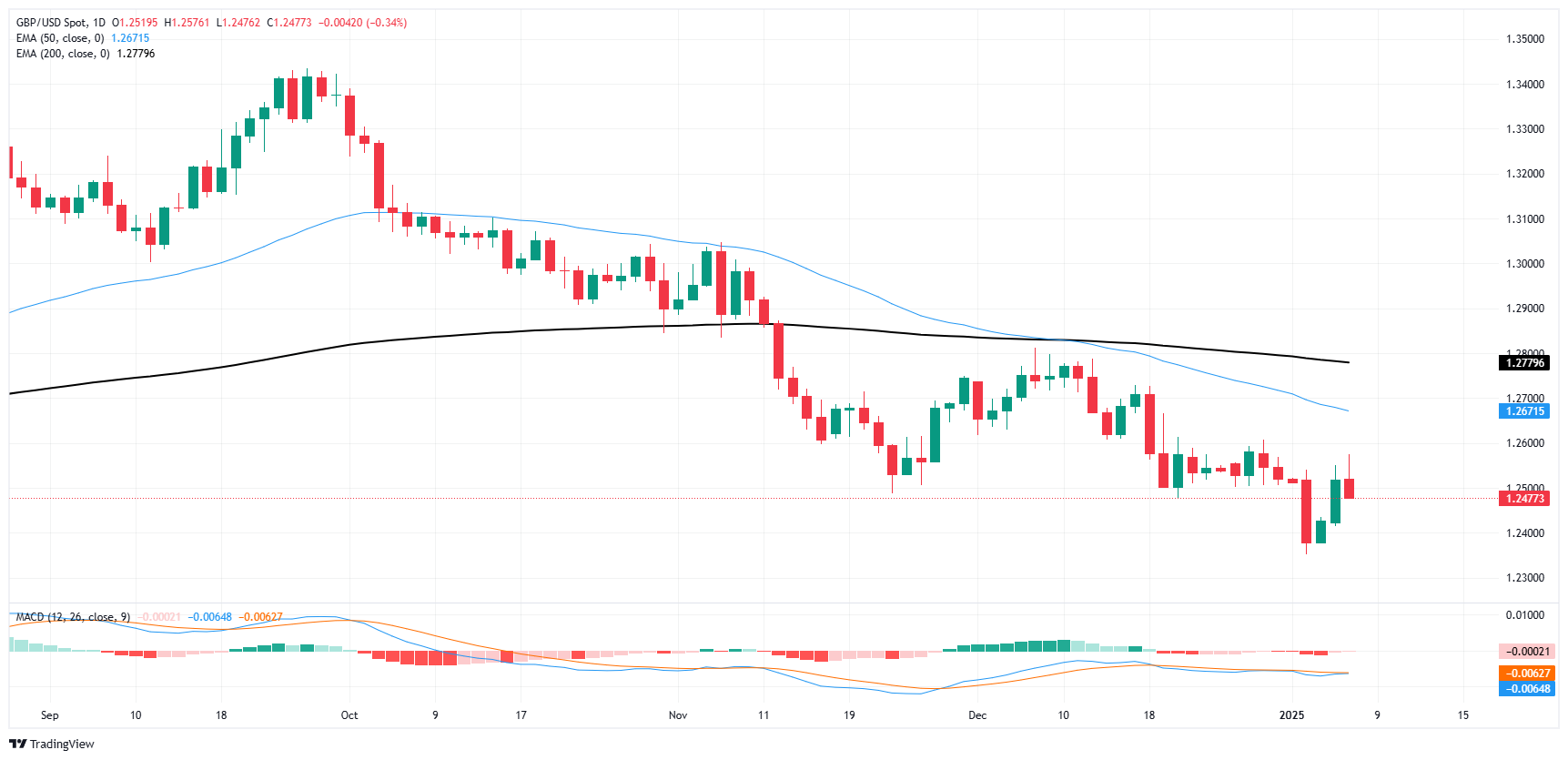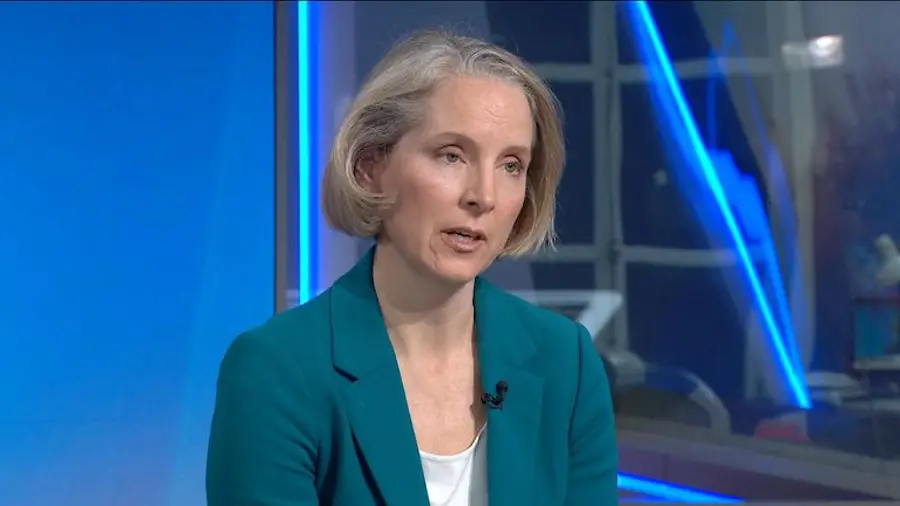- GBP/USD hesitates before falling below 1.2500 on Tuesday.
- A light UK data agenda will leave markets focused on US jobs data.
- Another NFP jobs report is coming later this week.
GBP/USD caught a slight bid on Tuesday morning before turning south once again and losing about a third of a percent to end the day at the bottom of the 1.2500 area. Cable bidders continue to struggle to find reasons to bid as a technical recovery falters after a tepid two-day bull run from 9-month lows near 1.2350.
It’s been a shaky start to the new year on sterling charts after ending 2024 on a three-month losing streak, and bid momentum is limping near medium-term lows on a light data agenda on the horizon for Cable operators. UK like-for-like retail sales rose 3.1% in the year to December, but GBP flows failed to overcome a fresh wave of risk aversion after the Purchasing Managers’ Index (PMI) activity results ) of the US and the survey of business costs will destroy near-term hopes of continued rate cuts by the Federal Reserve (Fed) in early 2025.
US data releases will once again dominate the calendar on Wednesday, with ADP employment change numbers for December and the latest Fed meeting minutes scheduled for release during the next US trading session. US ADP jobs numbers serve as a shaky forecast for what Friday’s nonfarm payrolls (NFP) employment numbers could look like, and investors will hope to draw some hope from any sign of a rate cut before June .
GBP/USD Price Forecast
GBP/USD is again trading in the southern part of the 1.2500 zone after this week’s bullish momentum faded early. The pair is trading at a familiar short-term technical floor as the 50-day EMA declines towards 1.2650.
Cable bidders have their work cut out for them as they can expect little support from the broader markets unless the buying pressure behind the Dollar finally eases, and a new higher low can be incorporated into the GBP/USD chart.
GBP/USD Daily Chart
British Pound FAQs
The British Pound (GBP) is the oldest currency in the world (AD 886) and the official currency of the United Kingdom. It is the fourth most traded foreign exchange (FX) unit in the world, accounting for 12% of all transactions, averaging $630 billion a day, according to 2022 data. Its key trading pairs are GBP/ USD, which represents 11% of FX, GBP/JPY (3%) and EUR/GBP (2%). The British Pound is issued by the Bank of England (BoE).
The most important factor influencing the value of the Pound Sterling is the monetary policy decided by the Bank of England. The Bank of England bases its decisions on whether it has achieved its main objective of “price stability” – a constant inflation rate of around 2%. Its main tool to achieve this is the adjustment of interest rates. When inflation is too high, the Bank of England will try to control it by raising interest rates, making it more expensive for people and businesses to access credit. This is generally positive for sterling, as higher interest rates make the UK a more attractive place for global investors to invest their money. When inflation falls too much it is a sign that economic growth is slowing. In this scenario, the Bank of England will consider lowering interest rates to make credit cheaper, so that companies will take on more debt to invest in projects that generate growth.
The data released measures the health of the economy and may affect the value of the pound. Indicators such as GDP, manufacturing and services PMIs and employment can influence the direction of the Pound.
Another important piece of information that is published and affects the British Pound is the trade balance. This indicator measures the difference between what a country earns from its exports and what it spends on imports during a given period. If a country produces highly in-demand export products, its currency will benefit exclusively from the additional demand created by foreign buyers seeking to purchase those goods. Therefore, a positive net trade balance strengthens a currency and vice versa in the case of a negative balance.
Source: Fx Street
I am Joshua Winder, a senior-level journalist and editor at World Stock Market. I specialize in covering news related to the stock market and economic trends. With more than 8 years of experience in this field, I have become an expert in financial reporting.






